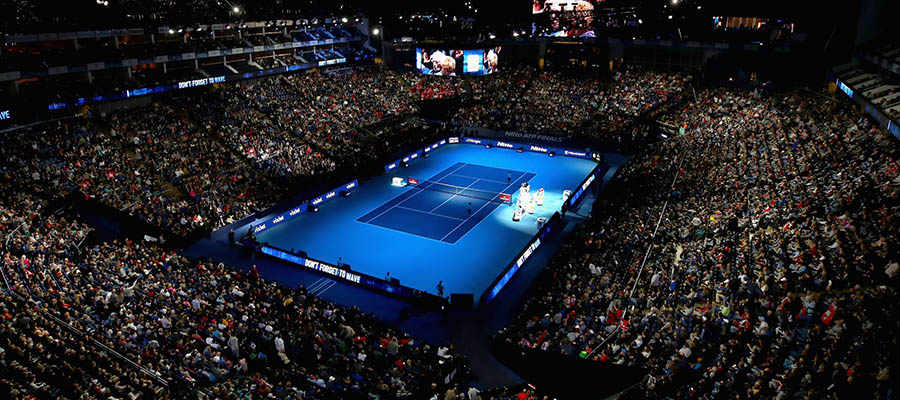The ATP World Tour Finals tennis tournament at the O2 Arena in London has switched from Barclays to Nitto as its sponsor - so we take a closer look at the Japanese materials manufacturer
The Nitto ATP Finals 2020 line-up (Photo: Wonderhatch/ATP Tour). After a default at the US Open, he went on to win the Rome Masters—handing him another record over Nadal, 36 Masters titles. The 2019 ATP Finals (also known as the 2019 Nitto ATP Finals for sponsorship reasons) was a men's tennis tournament played at the O 2 Arena on indoor hard courts in London, United Kingdom, from 10 to 17 November 2019. The top seven players in the FedEx ATP Race To Turin after the Rolex Paris Masters on 8 November 2021 qualify for the Nitto ATP Finals. If there is one current-year Grand Slam champion positioned between No. 20 in the Race, he qualifies in eighth place.
Roger Federer in his first match of the 2018 Nitto ATP World Tour Finals

Fans of tennis and its season-ending tournament the ATP World Tour Finals might have spotted a change at this year’s event – the sponsorship has changed hands from banking group Barclays to Nitto.
The Nitto Denko Corporation, to give the Japanese materials manufacturing company its full name, turns 100 this year and appears to be looking to start the new century by expanding its public profile.
President, CEO and COO Hideo Takasaki said when launching celebrations earlier this year: “In 1918, during a time when it was difficult to procure materials from abroad due to the First World War, our company was founded as Nitto Electric Industry Co, Ltd (Nitto today) in Osaki, Tokyo, with the aim of realising domestic production of insulating materials needed for electronics.
Nitto Masters Atp Finals
“When it was first founded, Nitto faced many crises, however, it overcame these and refined its foundation to become what it is today by pouring everything it had into each and every product, and by pursuing customer service.
“Currently, we are developing our business globally to offer various products in fields such as electronics, automobiles, housing, infrastructure, environment, and medicine, based on our core technologies of adhesive and coating technology.”
Here we break down the company’s history, its main areas of business and presence on the world stage.


What is Nitto?
Nitto and its 30,000 employees manufacture and sell 13,500 products to more than 70 industries – primarily transport, electronics and energy – generating a total revenue of roughly $8bn (£6bn).
These items vary greatly, with the Toyko-headquartered firm producing and selling everything from the film that protects screens on a new smartphone to key components used in wind turbines.
In the automotive space, it creates various materials needed for parts needed for electric vehicles, including a light-blocking material to stop interference with a car’s heads-up display (HUD), as well as others for improving performance and safety.
Nitto also has a presence in healthcare, producing multiple materials needed for tools used in the industry in addition to developing treatment drugs for cancer and liver cirrhosis.
For 2020, the company has set itself the target of reaching a revenue of one trillion yen (£6.8bn) and an operating income of 175 billion yen (£1.2bn).
Approach to global issues
Nitto has developed its own energy-conservation strategy, which features the widespread use of renewable energy and hybrid generation systems at its various plants.
With production process using large amounts of water, it has introduced water recycling methods, with the aim of increasing the amount of water recycled from 50% to 90% within then next five years.
The company has also put into place anti-leakage measures at its facilities to lower their environmental impact, resulting in yearly emissions reductions of up to 36 tonnes at certain locations.
Nitto Masters Atp Championship

Nitto Atp Masters 2020
Additionally, Nitto places an emphasis on promoting employee diversity across all levels of the organisation, setting yearly targets to increased the number of women in senior roles, reaching 4.13% last year.